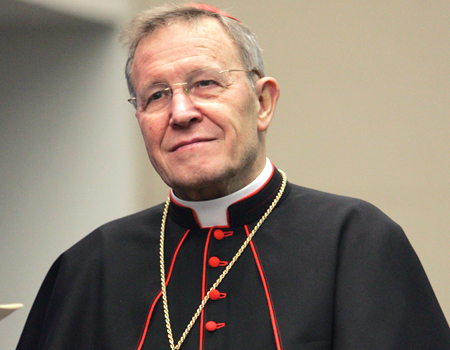Raymond Cohen, a top expert on relations between Israel and the Holy See, thinks Benedict’s planned visit this May to the Holy Land could happen. Cohen, a professor of international relations at Hebrew University of Jerusalem, is at Boston College this semester and spoke with The Globe’s Michael Paulson for the paper’s “Ideas” section. Despite the SSPX fiasco and the Gaza violence, Cohen sees cause for hope in Jewish-Catholic relations, and specifically between the Vatican and Israel. Here’s part of the exchange:
IDEAS: What’s the impact of Gaza?
COHEN: More than anything else, the breakdown in the peace process and the friction between Israel and the Palestinians has encumbered the relationship between the state of Israel and the Holy See. At the same time, it seems to me there’s no reason why it should affect the upcoming visit of the pope, and on the contrary, the visit would give the pope a chance to exert a calming influence on the parties.
IDEAS: What about the reconciliation with the excommunicated bishops?
COHEN: The director of the chief rabbinate rightly said this was a cause of real grief, but since then there have been clarificatory remarks by the pope (and others)…and I think that with the passage of time the relationship will get back on track.
IDEAS: There are so many points of tension.
COHEN: In Judaism, we have an idea of “argument for the sake of heaven.” We’re not a people that welcomes banal decorum, or harmony for its own sake. Difficult questions have to be argued about, and I think the Catholic Church also appreciates that. If you read the New Testament, Jesus doesn’t mind arguing. That’s a common tradition. And a relationship based upon a difference of opinion, however profound, I think is a very mutually beneficial relationship. You get to know yourself better, whether you’re a Jew or a Catholic, and also you change. This relationship has led to both sides changing.
IDEAS: So will there be a visit this year?
COHEN: I am optimistic, but, of course, the Middle East is not the most predictable of places.
Read the rest here.

